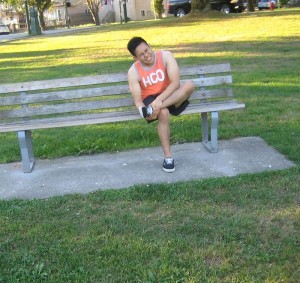Plantar fasciitis involves inflammation of the plantar fascia. The plantar fascia is a bundle of connective tissue that stretches from the heel to the ball of the foot. After some time, excess stress on the connective tissue results to overtightening, tearing and inflammation.
A sore cycle starts when the foot which naturally tightens at night starts to form new tears every day during the initial steps in the morning. Plantar fasciitis can be aggravated with the following:
- Arthritis
- Poor arch support
- Abrupt increase in physical activity
- Obesity or sudden increase in weight
Stretch the foot to reduce the tension on the plantar fascia. You can utilize your hands to stretch or use specific stretching aids. - Tight calf muscles
- Weak foot and ankle muscles
Management and prevention
Arch support is a vital component of non-surgical treatment for plantar fasciitis. It is recommended to wear footwear with a stable arch support, wide-shock absorbing base and cushioning in the front region of the foot.
Other measures include the following:
- Utilize ankle braces for added support to the foot
- Stretch the foot to reduce the tension on the plantar fascia. You can utilize your hands to stretch or use specific stretching aids.
- Night splints can provide continuous stretching of the plantar fascia throughout the night.
- Over-the-counter or customized shoe inserts
In case these measures could not alleviate the heel pain, the doctor might administer steroid injections. These injections promote the healing process by stopping the inflammation process.
Is surgery required?
In rare instances, some individuals with plantar fasciitis could not be managed effectively with non-surgical options. In such cases, the doctor might suggest surgery. The surgical procedure might involve:
- Cutting the plantar fascia close to its attachment point at the heel bone
- Stretching of the tissue to create a small gap
After some time, the gap is filled with scar tissue which leads to the lengthening of the plantar fascia. The surgery does not involve the removal of heel spurs, unless positioned in an area that directly affects walking and standing.
The recovery period varies for every individual. Most require at least 6 weeks to fully recover. Some need a cast or splint that can lengthen the time to takes to be able to continue with normal activities.

